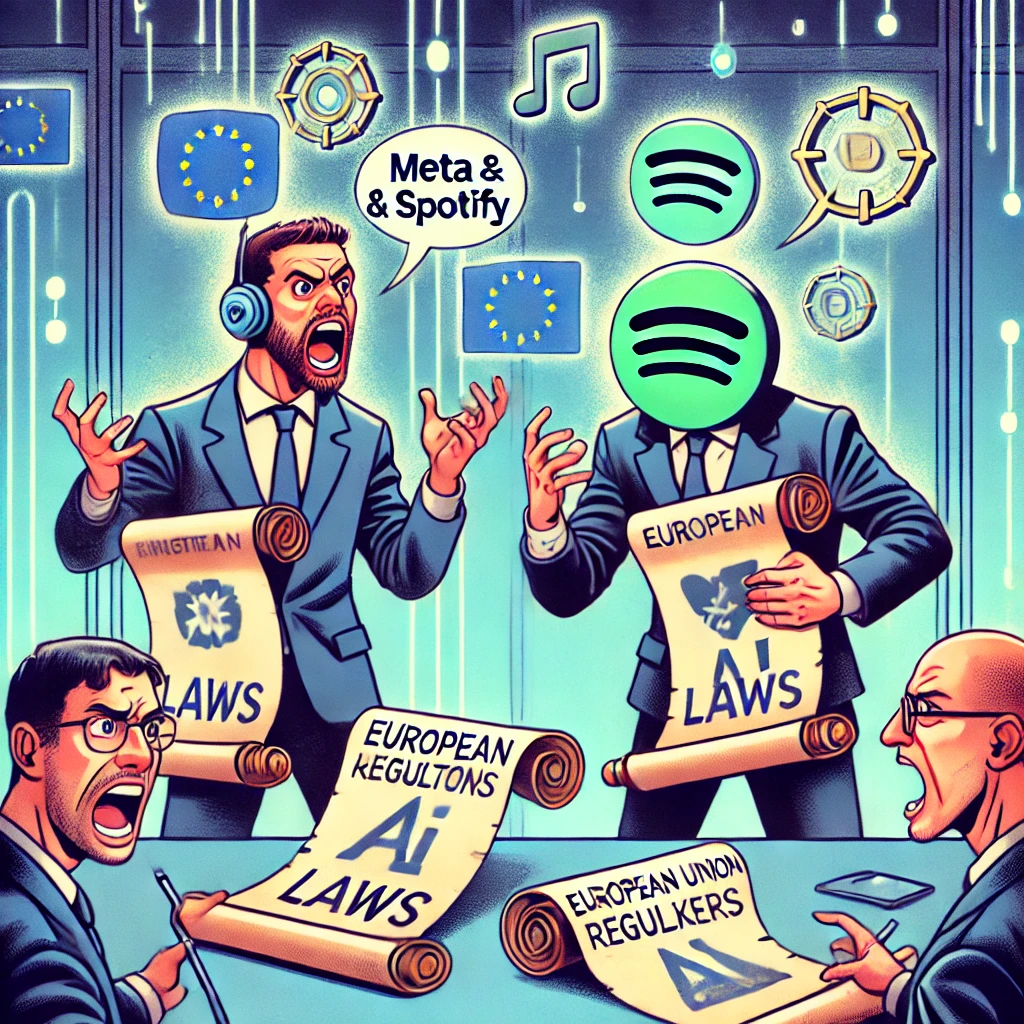Meta and Spotify, two major players in the global tech industry, have publicly expressed their discontent with recent decisions made by the European Union regarding artificial intelligence (AI). The EU’s new AI regulations, aimed at controlling the development and deployment of AI technologies, have been met with criticism from these companies, which argue that the rules could stifle innovation and harm businesses operating in the digital economy.
The EU’s AI Act
The European Union has been working on its AI Act, which aims to create comprehensive regulations around the use of artificial intelligence across member states. The legislation introduces a tiered system that classifies AI systems based on the risk they pose to society, from minimal to high-risk applications. The Act also sets strict requirements for transparency, data handling, and ethical usage of AI in high-risk sectors like healthcare, finance, and public services.
While the EU seeks to ensure AI is used responsibly, companies like Meta and Spotify believe the regulations are too restrictive and could hinder the growth of the AI industry in Europe.
Meta’s Response
Meta, the parent company of Facebook, Instagram, and WhatsApp, has been particularly vocal in its criticism of the EU’s approach to regulating AI. The company argues that the new rules impose unnecessary burdens on AI development and could limit the scope of innovation in areas like natural language processing and content recommendation systems, both of which are crucial to Meta’s business model.
Meta is concerned that the compliance requirements will make it harder for tech companies to operate in the EU, forcing them to invest significant resources into meeting regulatory standards. These added costs could slow down the rollout of new AI-driven features and services, especially for smaller tech companies that lack the financial muscle of global giants.
Spotify’s Concerns
Spotify, the world’s largest music streaming service, has also expressed dissatisfaction with the EU’s AI regulations. As a company that relies heavily on AI algorithms for personalized music recommendations, Spotify fears that the new rules could impede its ability to deliver a seamless user experience.
The company has pointed out that the AI Act’s broad categorization of “high-risk” AI systems could apply to its recommendation algorithms, even though these systems are designed to enhance user experience rather than pose societal risks. Spotify argues that imposing stringent regulations on such algorithms could reduce their effectiveness and limit the company’s ability to innovate in areas like content discovery and user engagement.
Impact on Innovation and Competition
Both Meta and Spotify have warned that the EU’s regulations could have unintended consequences for the region’s tech industry. They argue that while the aim of the regulations is to ensure ethical AI development, the overly cautious approach could stifle innovation and make Europe less competitive in the global tech landscape.
Critics of the regulations also worry that the rules may favor large companies with the resources to comply, while smaller startups and tech companies may struggle to meet the EU’s stringent standards, further concentrating power in the hands of tech giants.
The EU’s Perspective
The European Union, for its part, defends the AI Act as necessary to safeguard citizens’ rights and ensure that AI is developed and used in an ethical and transparent manner. The EU believes that establishing clear rules around AI development will foster trust and protect consumers from potential harms, such as bias, privacy violations, and the misuse of AI in surveillance.
While the EU has acknowledged the concerns raised by tech companies, it remains committed to implementing the AI Act to set a global standard for AI governance.
Conclusion
Meta and Spotify’s pushback against the EU’s AI regulations underscores the ongoing tension between government efforts to regulate emerging technologies and the tech industry’s desire for innovation. As the AI Act moves closer to becoming law, the debate over how to balance regulation with innovation will likely intensify, with tech companies advocating for more flexible rules that encourage growth without compromising on ethics and safety.





